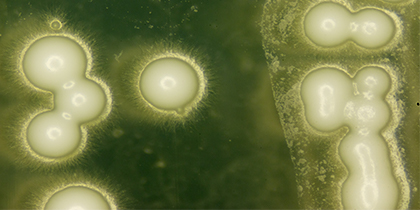
May 4, 2020, by Hazel Sayers
Food Design for the Future (FD2)
Food Design 2 is one of our initial demonstrator projects and has been addressing food in the digital era by exploring the use of digital technologies to enhance the food consumption experience.
Work to date has included the development a deck of food ideation cards, which combine different sensory properties of food, consumption contexts and opportunities for digital technologies. After a series of iterations, evaluation and testing, the cards are now ready for printing. In addition to sharing the cards with industry, they will be integrated into the Cardographer platform which explores how usage data from ideation cards sessions enable further reflection on design, by using image recognition technology aided by augmented reality. Our SME partner, development kitchen Blanch and Shock have been using the cards to describe our miso recipes in an encodable manner.
The team has built a prototype ‘Internet of Things bin’ for biomass with input from a local SME sub-contractor. The bin – currently housed in one of the team’s kitchens – monitors and logs what products are put into it by weight sensors, a camera in the lid and tilt sensor. Next steps will address how to make the bin more interactive, with voice agent technology, to scale-up insights from the home about how food enters the house, when it becomes waste, and what role our miso recipes might play as provocative interventions.
Investigating how digital innovation can be introduced to food packaging is an important consideration of manufacturer, supplier and consumer, and an area the team has been exploring that potentially links to other Beacons. Could packaging include Artcodes – the product of earlier research conducted at the University of Nottingham – to provide aesthetically pleasing digital packaging containing product information, such as what resources and ingredients led to the creation of the product, or could it engage the public in more interactive food consumption experiences?
In addition, the team has led on an exciting initiative to establish a smart food network. Following a workshop in September, the team is presently collaborating with colleagues on a number of joint funding proposals to support the continuation of this important area of research.
No comments yet, fill out a comment to be the first

Leave a Reply